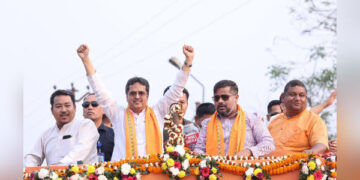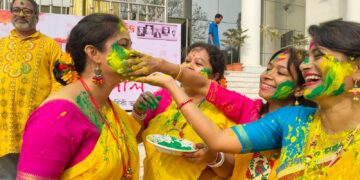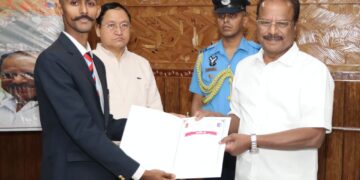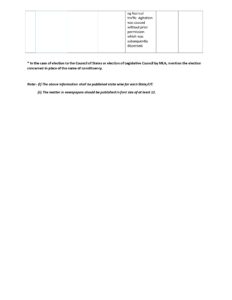Agartala, September 26: Various organizations across Tripura organized programmes on Thursday to commemorate the 204th birth anniversary of Ishwar Chandra Bandyopadhyay, popularly known as Vidyasagar. The legendary social reformer, educator, and advocate for women’s rights, often hailed as the “Ocean of Knowledge,” was honored for his immense contributions to Indian society.
In Agartala, the Information and Cultural Affairs (ICA) department of the Tripura government organized a major event at Drop Gate. Among the dignitaries present were Balai Goswami, Sabadhipati of West Tripura Zilla Parishad, Subrata Chakraborty, Vice Chairman of the State Level Cultural Advisory Committee, and Bimbishar Bhattacharjee, Director of the ICA department. They paid homage to Vidyasagar alongside a large gathering of students and locals.
The programme also featured a cultural segment, emphasizing Vidyasagar’s critical role in shaping modern India. Speaking to reporters Balai Goswami, Sabadhipati of West Tripura Zilla Parishad, highlighted the need for the new generation to embrace his reformist ideas, which transformed societal attitudes towards women’s rights and education.
Several organizations, including the All India Democratic Students’ Organisation (AIDSO) and the All India Save Education Committee, Tripura Unit, also held events to celebrate the birth anniversary of the Bengali, Sanskrit scholar, and social reformer. Schools across the state organized similar programmes, educating students about Vidyasagar’s achievements and contributions.
Born on September 26, 1820, in Hooghly, West Bengal, Ishwar Chandra Vidyasagar emerged as a pioneering force in the modernization of education during the 19th century.
His vision of progressive reform in Indian society, especially regarding women’s rights, made him one of the most influential thinkers of his time.
Vidyasagar’s most prominent contribution came through his efforts to reform Hindu widow remarriage. At a time when society imposed severe restrictions on widows, he relentlessly campaigned for their right to remarry. His advocacy played a pivotal role in the passage of the Hindu Widows’ Remarriage Act of 1856, a landmark bill that challenged orthodox Hindu customs and was eventually passed with the backing of Lord Dalhousie, then Governor-General of British India.
In addition to advocating for widow remarriage, Vidyasagar fought against the practice of child marriage. His efforts contributed to the passage of the Age of Consent Act of 1891, which set the minimum age for the consummation of marriage at 12 years.
A staunch proponent of women’s education, Vidyasagar established numerous schools for girls and simplified the Bengali alphabet to make education more accessible. His book, Barnaparichay, a primer for learning the Bengali alphabet, remains widely used to this day.
Vidyasagar’s contributions to the Bengali language were equally significant. He introduced punctuation marks in Bengali prose, modernized and simplified its structure, and worked to ensure its accessibility to the common people.
As Tripura and the rest of the country celebrate the life and legacy of this great reformer, his ideals of equality, education, and social reform continue to resonate, inspiring generations to strive for a more just and educated society.







































